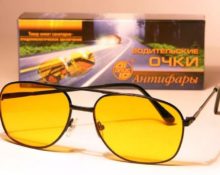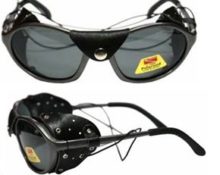We are all accustomed to protecting our eyes from bright light with sunglasses in clear weather. But drivers, builders, fishermen or athletes can also be annoyed by glare reflected from horizontal surfaces - an asphalt road, a slippery roof, water surface or snow cover. In this case, special glasses with polarized protection will come to the rescue.
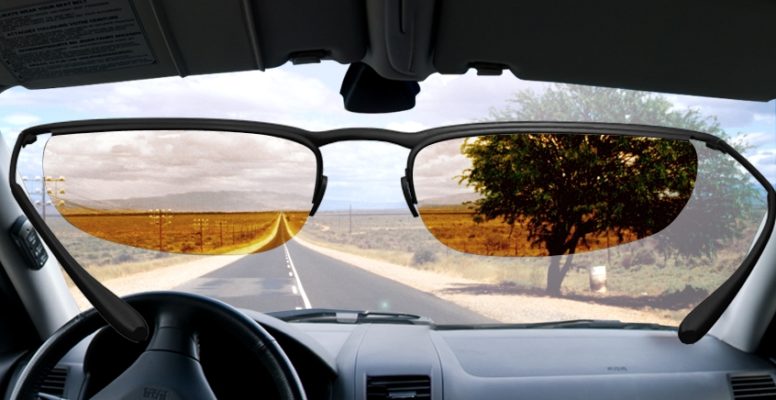
What is polarization in glasses, what is it for?
All sun protection accessories protect from ultraviolet exposure to varying degrees. But some categories of people also need protection from sunlight in clear weather..
Glasses with a polarizing filter are needed to suppress all glare reflected from horizontal surfaces - water surface, snow field, smooth asphalt or a shiny roof.
If glasses are made of high-quality materials, then a person will not feel a loss of clarity in the eyes when wearing them.
Each manufacturer applies the polarizing layer in its own special way. It can be soldered between two outer lenses.It happens that the filter is applied at the molecular level, and then the entire polycarbonate surface turns into a polarizing film.
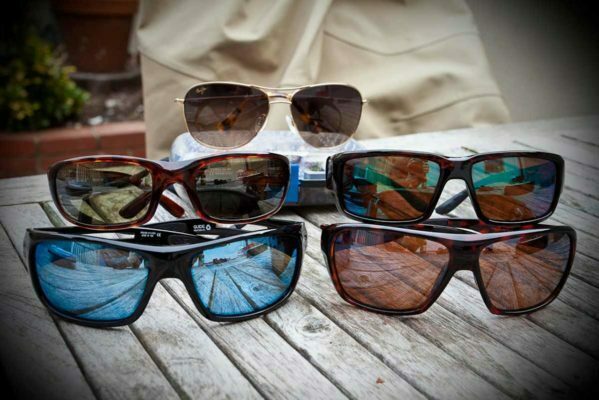
In inexpensive models, the coating is applied in a thin layer to the surface of the lens itself. During use, it may wear off and the effect will disappear. If the filter is applied poorly, the lens may delaminate or begin to distort the visual image.
It is best to choose glasses with polarization and anti-glare. In this case, glare will be removed both from the horizontal surface and from the lens itself.
If you are going to drive wearing such glasses even in the dark, then choose chameleon glasses, the coverage of which will change depending on the brightness level of the sun. You cannot drive in the dark with regular polarized sunglasses.
You can check whether such a coating is present right in the optical shop, where they will show you a special tester - picture, which is visible exclusively through a polarizing filter.
If you make a purchase at the market, let the seller give you another pair with the same filter. Place the lenses at a 90-degree angle and look through them at the light: if polarization is present, the lenses will become dark at the point of contact.
At home, you can look at any liquid crystal display, but only at a strictly right angle. If a filter is present, the picture will become dim.

Advantages and disadvantages
These glasses have many advantages, but along with this there are also certain disadvantages.
Pros:
- remove glare;
- improve the perception of sunlight;
- increase the contrast and clarity of the image;
- reduce fatigue and eye strain;
- recommended for those with light hypersensitivity.
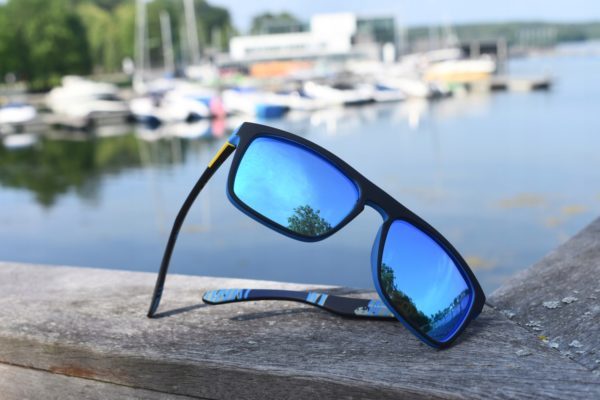
Minuses:
- weaken the reflected light, which means the driver will be less able to see road signs, side lights, and brake lights;
- darken the image, so it will be difficult to view a mobile phone, GPS navigator, or even the interior dashboard;
- smooth out the image, as a result of which a driver may not notice a hole on the road, or a skier may not notice a block of ice among the snow;
- the price of such glasses is much higher than regular ones.
Who shouldn't wear them?

There are times when, after wearing glasses with a polarizing filter, a person begins to complain of regular headaches or is tormented by dizziness. In this case, wearing such glasses is not recommended.
How are they different from regular ones?
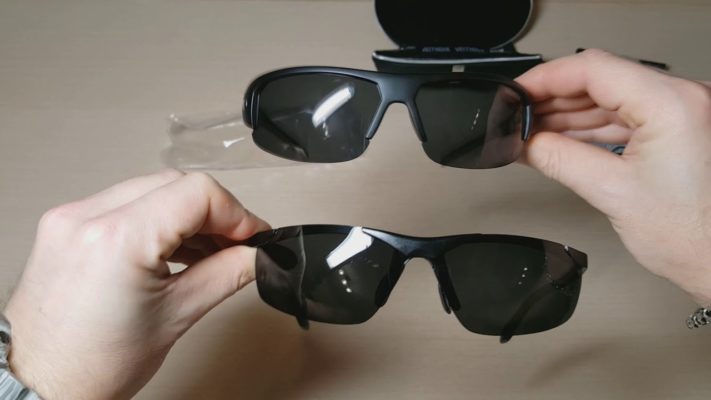
Classic sun protection accessories reduce the intensity of light, and the anti-reflective coating is designed to remove glare from the very surface of the glasses. In order not to suffer from such unpleasant effects, a polarizing filter was invented. So, by purchasing such a miracle of ophthalmic technology, you will protect your eyes from bright sunlight and at the same time reduce its level for perception.


 0
0